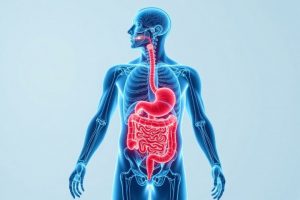In an interview with Genomic Press Innovators & Ideas, renowned neuroscientist Dr. Randy J. Nelson provides insights into his groundbreaking research on how disrupted circadian rhythms affect brain function and overall health. Published in Brain Medicine, the interview traces Dr. Nelson’s unconventional path from farm worker and autopsy assistant to one of the world’s leading experts on biological rhythms.
How Artificial Light at Night Affects Multiple Body Systems
Dr. Nelson, chair of the Department of Neuroscience at West Virginia University, has spent the last decade studying the hidden dangers of artificial light exposure. His research shows that light at night not only impairs sleep quality, but also fundamentally alters immune function, triggers neuroinflammation, disrupts metabolism, and affects mood regulation. The interview provides insight into Dr. Nelson’s remarkable path to academic prominence. After working night shifts at a turkey processing plant during high school and later performing autopsies at two hospitals in Cleveland, he eventually found his way to the University of California, San Diego, through an unexpected job opportunity at the San Diego Zoo.

Perhaps most concerning, the research shows direct effects on mood regulation, which is important for understanding depression and anxiety disorders. Which specific wavelengths of light most disrupt the circadian rhythm? How quickly can the body recover from chronic light exposure? What contribution does time of day make as a biological variable? These questions are the subject of ongoing research in Dr. Nelson’s laboratory.
Translating Findings into Clinical Practice
Beyond basic research, Dr. Nelson’s team is currently conducting clinical trials to investigate whether blocking disruptive light influences can improve outcomes for intensive care patients. Two large studies are focusing on patients who have had a stroke and heart surgery, groups of people who are particularly susceptible to the typically harsh lighting conditions found in hospital intensive care units. “Circadian rhythms are a fundamental aspect of biology, and much is known about them from basic research,” says Nelson. “However, little of this basic research has been translated into clinical medicine.”
The research also extends to healthcare workers themselves. A third clinical study is investigating whether bright blue light visors can help night shift nurses reset their circadian rhythms, potentially improving their sleep quality, cognitive performance, and mood. Could similar measures help other shift workers in various industries stay healthier despite irregular work schedules? One of Dr. Nelson’s most provocative suggestions is to recognize time of day as a critical biological variable in all research. He argues that the results of experiments can vary greatly depending on when the studies are conducted, but this information rarely appears in scientific publications.
During his career at Johns Hopkins University, Ohio State University, and now West Virginia University, Dr. Nelson has mentored 25 doctoral students and 16 postdoctoral fellows. His leadership philosophy emphasizes creating a supportive environment in which young scientists can thrive. His mentoring philosophy was recently featured in a Society for Neuroscience Neuronline podcast.
As the current president of the Association of Medical School Neuroscience Department Chairs, Dr. Nelson advocates for resources and policies that support early-career researchers. He places particular emphasis on helping faculty members navigate the challenging early stages of their careers through strategic resource allocation and mentoring. What role could circadian rhythm research play in addressing the mental health crisis among doctoral and postdoctoral students? How can academic institutions better support work-life balance for researchers who study biological processes around the clock?
The Importance of Good Circadian Hygiene for Health and Well-Being
Dr. Nelson’s research has immediate practical implications for public health. Simple measures such as reducing screen time in the evening, using warmer light colors after sunset, and maintaining consistent bedtimes could have a significant impact on public health. His work suggests that taking our evolutionary heritage into account by aligning modern life more closely with natural light conditions could prevent numerous chronic health problems.
He recently published a book with Oxford University Press entitled “Dark Matters” to educate the public about the importance of good circadian hygiene for health and well-being. The interview with Dr. Randy J. Nelson in Genomic Press is part of a larger series called “Innovators & Ideas,” which introduces the people behind today’s most influential scientific breakthroughs.








